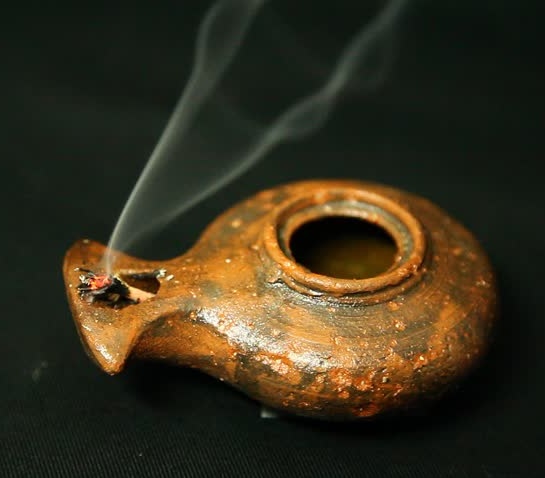FWP:
For background see S. R. Faruqi's choices. For more on Ghalib's unpublished verses, see the discussion in {4,8x}.
I didn't feel very comfortable with this verse; there was obviously some kind of connection in it that I hadn't fully fathomed. Faruqi had marked it out most particularly as a fine verse, and I couldn't see why. So I asked him, and he was kind enough to reply in some detail. His analysis is reproduced above. The metaphorical use of 'garden' was something I hadn't factored in; also the idea that when fire doesn't burn something fully what's left is a 'scar'.

Asi:
If there would be intoxication, and there would be no garden, then that intoxication is like smoke from an extinguished candle. And in that situation, the wine-glass seems to be a wound/scar that has been reddened by flame.
== Asi, pp. 228-229